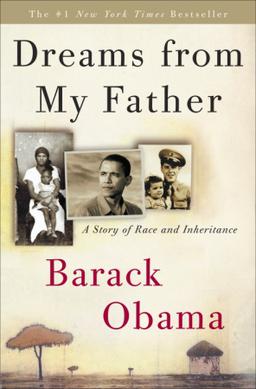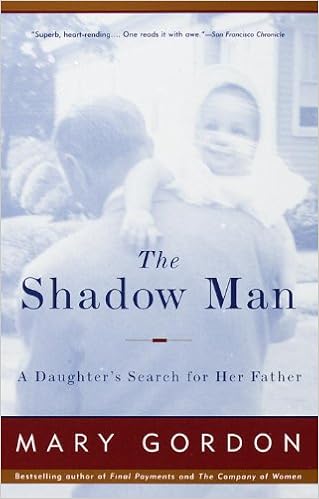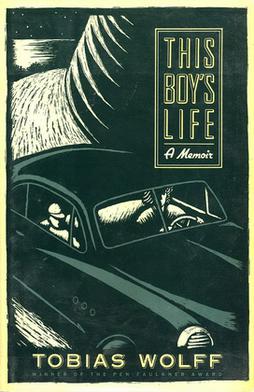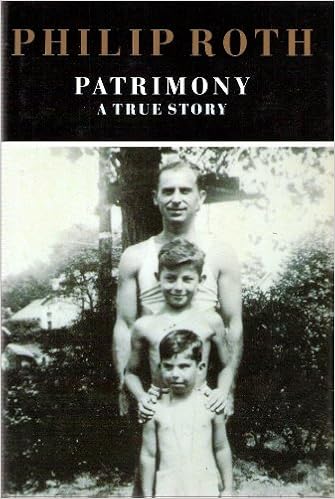A Brief Look at Father Memoirs
Stories that center on fathers have a distinct place in the memoir genre. For better or worse, fathers hold a place that intersects with the world and experience in a way far different from that of a mother’s. As in Jung’s archetypes, fathers are symbols of worldliness and action, yet many of the fathers depicted in these memoirs embody qualities both maternal and paternal. They are both figures of power and the bearers of a powerful and necessary love. That love is often complicated by flaws and (as is so often the occasion in memoir), a distance that incites yearning. The genre further complicates as it subdivides into father memoirs by sons and by daughters. Yet the constant is often that of distance—geographic, emotional, or both. This is especially true in the now-classic memoir, President Barack Obama’s Dreams of My Father.

It’s as good a place as any to start. This father memoir (published in 1995) portrays the mix of longing and mystery that fathers so often hold. Early on, we find the young Barack struggling academically and socially under the specter of his distant father, the elder Obama, a brilliant, commanding, but ultimately absent figure who exists at a remove. As a result, he occupies a near-mythic status. He appears once, when the young Barack is ten years old, a proximity that is affecting enough to instill in the young son a persistent need to meet the father’s expectations. The memoir tracks this odyssey, which is as much an internal journey as external, and charts the young Barack’s love of history, books (by James Baldwin, Langston Hughes, Nietzsche and St. Augustine among them), and of course, law and governance. In a review, the New York Times observed that in his portraying himself and the search for identity as a fatherless son, President Obama “is at once the solitary outsider who learns to stop pressing his nose to the glass and the coolly omniscient observer providing us with a choral view of his past,” which is as good a definition of a father memoir protagonist as I’ve yet to read.
Fairyland: A Memoir of My Father, by Alysia Abbott.

As mentioned here in last week’s LitStack Recs, Abbott mines both the distance and closeness that defined her relationship with the father, the poet and activist Steve Abbott, who became her primary caregiver after the death of her mother. Raised by her single father after the death of her mother, Barbara, in a car accident, the young Alysia is raised with both love and a lack of convention. Though at the heart of the story is her father’s art, but also his closeted life as gay, eventual coming out, and his death from AIDS in 1992. Like Dreams of My Father, the account is as much a personal one as an important social document.
Epilogue, by Will Boast

Both a remembrance and a elegiac account of the loss of a family, Boast’s 2014 memoir (a recipient of The Rome Prize) tracks the tragic early death of his mother Nancy, the untimely death of his younger brother Rory, and the family secret left behind after his father Andrew’s death (when Will was twenty-four). In straightforward, and often painfully honest terms, Boast portrays the years growing up in Fontana, Wisconsin, and the assimilation sought by his English-born parents (who met and married in 1970s Southampton). But what drives this gripping memoir is the discovery after Andrew’s death of a first marriage and the wife and two sons he left behind in England. This is the inciting event that drives Will’s aim to connect with them, and as he does, unravels the mystery of his father’s life. As with the best memoirs, the story belongs to its narrator, both in the grief and loss Will suffers at losing his family of origin and his search to find the family he has left.
The Shadow Man, A Daughter’s Search for her Father, by Mary Gordon

This now-classic memoir (published in 1996), by acclaimed novelist Mary Gordon, tracks another father secret, Gordon’s discovery in her mid-forties that her father was not Catholic, but Jewish. In a review by the LA Times, Gordon’s memoir was called an investigation of deception and self-deception, an apt description of this memoir’s mystery-like mood. David Gordon’s flaws, he is a novelist manqué and man about town, are more than apparent to the reader, yet Gordon idealizes her father. Though rather than impede the author’s believability, her stance only adds to the sadness and tension of her account. A “first family” enters into the storyline here as well, but instead of offering hope, as it does for Boast, the discovery serves as the initial crack that ultimately dismantles the falsehoods.
This Boy’s Life: A Memoir, by Tobias Wolff 
Published in 1989, Wolff’s memoir has since become a classic of the contemporary genre. The preeminent story writer and novelist has said This Boy’s Life began as notes written to himself about his boyhood on his peripatetic and often tumultuous boyhood after his mother flees her marriage. And though for young Toby, his mother is essential to the story—in her tragic uncertainty and unfortunate choices—it’s the absence of the father that drives Toby’s yearning and so many of his actions. In a voice that is both cutting and honest, Wolff looks at the damaged men, like his stepfather, Dwight, and the distant father in who seems most influential in the ambition Toby sets for himself, to be accepted at an elite boarding school—a feat that requires no small amount of deception and self-reinvention.
Patrimony: A True Story, by Philip Roth

Roth’s 1991 memoir, charts the illness and death of his father, Herman Roth, from an inoperable brain tumor. In Roth’s trademark penetrating and melancholy style, he charts the account of his widowed, eighty-six year old father, and in a decidedly anti-Rothian stance, offers one of the more tender entries into the Roth canon. Roth shows an unvarnished, full-faceted picture of what it’s like to care for an elderly parent—the humiliations, the tensions and the exhaustion—while showing us the man Herman had once been, and in many ways still is, powerful, competent, charismatic. For me, as a woman reading Roth (and often in awe of the prose) it’s an understatement to say there are moments when it feels like I’m reading dispatches from an unfriendly country. Yet in this memoir, Roth adopts a different stance, one informed by filial respect and clear-sightedness. Though no memoir can possibly be “true,” what of the truth can be known surely has its source in the son’s love for his father.
—Lauren Alwan
